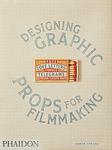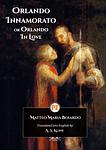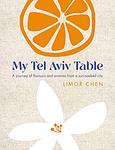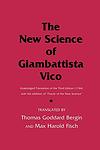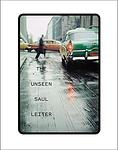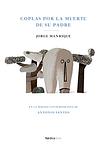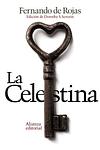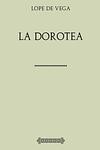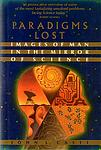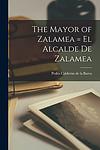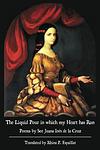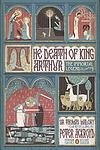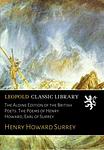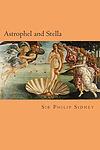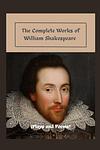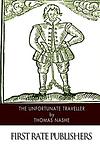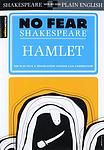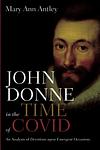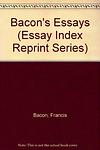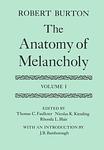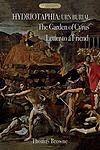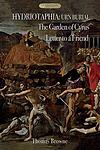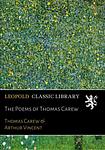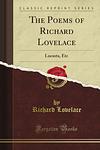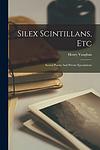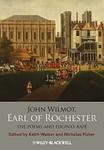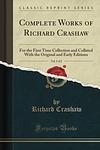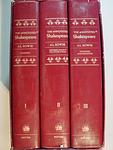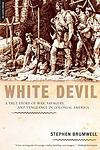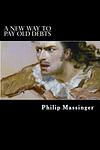Harold Bloom's The Western Canon
This is one of the 300 lists we use to generate our main The Greatest Books list.
-
Prison Of Love by Diego de San Pedro
"Prison of Love" is a seminal work in the Spanish sentimental romance genre, where the protagonist, a nobleman, finds himself imprisoned by his unrequited love for a woman of higher social standing. Through a series of letters, the narrative delves into themes of love, honor, and social constraints, reflecting the emotional turmoil and inner conflicts of the lovelorn writer. The epistolary novel explores the psychological depths of passion and the suffering it can inflict, offering a poignant look at the ideals of courtly love and the power dynamics at play within romantic relationships during the late 15th century.
The 7152nd Greatest Book of All Time -
The Divine Comedy by Dante Alighieri
In this epic poem, the protagonist embarks on an extraordinary journey through Hell (Inferno), Purgatory (Purgatorio), and Paradise (Paradiso). Guided by the ancient Roman poet Virgil and his beloved Beatrice, he encounters various historical and mythological figures in each realm, witnessing the eternal consequences of earthly sins and virtues. The journey serves as an allegory for the soul's progression towards God, offering profound insights into the nature of good and evil, free will, and divine justice.
The 27th Greatest Book of All Time -
The New Life by Dante Alighieri
"The New Life" is a prose work that combines both poetry and an autobiographical narrative to explore the themes of love and spiritual longing. The text recounts the author's intense love for a woman named Beatrice, whom he first sees at a young age and becomes enamored with, despite their minimal interaction. Her sudden death plunges him into a state of grief and prompts a profound journey of philosophical and theological inquiry. The work is a meditation on the nature of love, its connection to the divine, and the transformative power it holds. Through a series of poems and reflective prose passages, the author examines the impact of this idealized and unattainable love on his life and work, ultimately finding a new understanding of the relationship between earthly passion and eternal life.
The 7152nd Greatest Book of All Time -
Lyric Poems by Petrarch
"Lyric Poems" is a collection of deeply emotional and introspective poetry that delves into the themes of love, desire, and beauty, often through the lens of the author's infatuation with an idealized woman. The poems are characterized by their elegant and refined language, reflecting the poet's classical learning and his role in the early Renaissance humanist movement. The work is significant for its use of the sonnet form, which the poet perfected and popularized, influencing generations of writers. The poems oscillate between joy and despair, capturing the complexities of the human heart and the poet's own intellectual and emotional journey.
The 7152nd Greatest Book of All Time -
Selections by Petrarch
"Selections" is a compilation of writings from a prominent Italian scholar and poet of the early Renaissance, known for his humanist contributions and lyrical poetry. The book encompasses a range of his works, including personal letters, philosophical treatises, and perhaps most famously, a series of sonnets dedicated to his idealized love, Laura. These writings reflect the author's deep engagement with classical antiquity, his introspective examination of human emotions, and his influence on the development of vernacular literature. His exploration of individual experience and expression of personal longing mark a significant departure from the medieval traditions of the time, positioning him as a forerunner of Renaissance humanism.
The 7152nd Greatest Book of All Time -
Decameron by Giovanni Boccaccio
"Decameron" is a collection of 100 stories told by a group of seven young women and three young men sheltering in a secluded villa just outside Florence to escape the Black Death, which was afflicting the city. The tales, which range from the erotic to the tragic, the hilarious to the instructional, are embedded in a rich framework narrative that provides a detailed portrait of the society of the Italian Renaissance.
The 204th Greatest Book of All Time -
Orlando Innamorato by Matteo Maria Boiardo
The book is an epic poem that blends history, myth, and chivalric romance, recounting the adventures of its eponymous hero, Orlando, a knight of Charlemagne's court. Set against the backdrop of the war between Charlemagne's Christian paladins and the Saracen army that has invaded Europe, the narrative weaves a complex tapestry of love, valor, and enchantment. The protagonist, driven by his unrequited love for the beautiful Angelica, faces numerous trials and battles, encountering wizards, mythical creatures, and various magical artifacts. The poem is notable for its rich interplay of fantasy and reality, as well as its influence on later literature, particularly in the development of the Renaissance chivalric epic.
The 7152nd Greatest Book of All Time -
The Orlando Furioso by Lodovico Ariosto
"The Orlando Furioso" is an epic poem that tells the story of Orlando, a knight who falls madly in love with a pagan princess. His unrequited love drives him to madness, causing him to abandon his knightly duties and wander aimlessly. The poem also includes various subplots involving other knights and their adventures, including battles with monsters and sorcerers, quests for magical artifacts, and romantic entanglements. The work is known for its complex structure, richly detailed descriptions, and vividly drawn characters.
The 2206th Greatest Book of All Time -
Sonnets And Madrigals by Michelangelo Buonarroti
"Sonnets and Madrigals" is a collection of deeply personal and reflective poetry by one of the Renaissance's most iconic figures, known primarily for his monumental contributions to art and architecture. The poems reveal a lesser-known side of the artist's creative genius, exploring themes of love, beauty, spirituality, and human emotion. Through the structured elegance of sonnets and the lyrical flow of madrigals, the poet delves into the complexities of the human condition, offering insights into his own inner life and the intellectual currents of his time. The work stands as a testament to the multifaceted talent of an individual who could express profound ideas not only through visual mediums but also through the power of the written word.
The 7152nd Greatest Book of All Time -
The Prince by Niccolo Machiavelli
This classic work of political philosophy provides a pragmatic guide on political leadership and power, arguing that leaders must do whatever necessary to maintain authority and protect their states, even if it means compromising morality and ethics. The book explores various types of principalities, military affairs, the conduct of great leaders, and the virtues a prince should possess. It is known for its controversial thesis, which suggests that the ends justify the means in politics.
The 86th Greatest Book of All Time -
The Mandrake by Niccolo Machiavelli
"The Mandrake" is a satirical play that explores themes of corruption, deceit, and the manipulation of social norms. Set in Renaissance Italy, the story revolves around a young man who, desperate to win the affections of a beautiful but married woman, concocts a complex scheme involving a love potion derived from the mandrake root. With the help of a cunning rascal and a corrupt priest, the plan unfolds with a series of deceptions and moral compromises, ultimately questioning the true nature of virtue and vice in a society rife with hypocrisy. The play delves into the darker aspects of human behavior, using wit and humor to expose the lengths to which individuals will go to satisfy their desires.
The 7152nd Greatest Book of All Time -
Notebooks by Leonardo da Vinci
The book is a compilation of writings and sketches from one of history's most brilliant minds, offering a window into the intellectual pursuits and creative process of the Renaissance polymath. It encompasses a wide array of subjects, from anatomy to hydraulics, from painting to engineering, revealing the author's insatiable curiosity and his systematic approach to observation and inquiry. The collection is not only a testament to the author's genius but also a source of inspiration and insight into the fusion of art and science during the Renaissance period.
The 7152nd Greatest Book of All Time -
The Book Of The Courtier by Baldassare Castiglione
This Renaissance classic is a seminal work on etiquette and courtly manners, presenting an idealized vision of the perfect gentleman and lady at the courts of Italy. Through a series of dialogues set over four evenings, the book explores the attributes of a well-rounded courtier, emphasizing skills such as martial arts, physical grace, and intellectual pursuits, alongside the importance of moral virtue and the art of conversation. The text also delves into the complex interplay of love, the role of women in court, and the philosophical underpinnings of what it means to live a noble life, ultimately providing a guide to the refined behavior expected in aristocratic circles of the time.
The 5265th Greatest Book of All Time -
Rime by Gaspara Stampa
"Rime" is a poignant collection of Italian sonnets and madrigals that delve into the depths of unrequited love, passion, and longing. The poems, penned by a renowned female poet of the Renaissance, reflect her intense emotional journey and her struggle with the societal constraints of her time. Through her lyrical mastery and vivid imagery, the poet explores themes of desire, sorrow, and the search for artistic and personal recognition, offering a raw and intimate glimpse into the soul of a woman ahead of her time, who channels her heartache into a lasting literary legacy.
The 7152nd Greatest Book of All Time -
Lives of the Artists by Giorgio Vasari
"Lives of the Artists" is a comprehensive collection of biographies of the most significant Italian artists from the 13th to the 16th centuries. The book provides a detailed overview of the artists' lives, their works, and their contributions to the art world. It includes the biographies of renowned artists like Leonardo da Vinci, Michelangelo, and Raphael, among others. The author's personal acquaintance with some of these artists lends a unique perspective, making the book a valuable historical document.
The 999th Greatest Book of All Time -
Autobiography by Benvenuto Cellini
The book is a vivid personal account of a 16th-century Italian artist and goldsmith, providing a detailed portrayal of Renaissance life. The author narrates his tumultuous career, which spanned artistic triumphs, patronage under powerful figures, and frequent legal and violent skirmishes. His narrative is filled with tales of his work on important commissions, his encounters with notable contemporaries, and his passionate dedication to art. The autobiography stands out for its lively storytelling, the author's brash personality, and insights into the social and cultural dynamics of the time, making it a valuable historical document as well as an engaging personal story.
The 2890th Greatest Book of All Time -
Jerusalem Delivered by Torquato Tasso
The epic poem unfolds during the First Crusade, depicting Christian knights led by Godfrey of Bouillon as they lay siege to Jerusalem, aiming to recapture the holy city from Muslim control. The narrative weaves together themes of love, valor, and chivalry, with a cast of characters that includes the brave knight Rinaldo and the enchanting sorceress Armida. As the warriors confront various supernatural and earthly challenges, the poem explores the conflict between Christian duty and personal passion, ultimately celebrating the virtues of heroism and piety in the quest for divine providence and the triumph of Christian faith.
The 4143rd Greatest Book of All Time -
The Expulsion Of The Triumphant Beast by Giordano Bruno
"The Expulsion of the Triumphant Beast" is a philosophical treatise that delves into the author's vision of the universe and the nature of knowledge. It is an allegorical work that critiques the religious and philosophical dogmas of its time, advocating for a pantheistic conception of God and an infinite universe. The book challenges the Aristotelian cosmology and the dominance of the Catholic Church, promoting a new understanding of the cosmos where God is present in all things, and all religions contain a portion of the universal truth. The author's ideas were revolutionary, contributing to the development of modern thought, but also controversial, leading to significant conflict with the religious authorities of the era.
The 7152nd Greatest Book of All Time -
Poems Of Tommaso Campanella by Tommaso Campanella
The book is a collection of philosophical and visionary poetry written by a 16th-century Italian philosopher and poet. The poems delve into themes of utopian society, metaphysics, and the critique of contemporary political and religious institutions. The author's work reflects his radical ideas and his quest for knowledge, as well as his experiences of imprisonment due to his heterodox beliefs. His poetry is characterized by a deep sense of spirituality and a longing for intellectual and social reform, offering a glimpse into the mind of one of the early modern period's most provocative thinkers.
The 7152nd Greatest Book of All Time -
The City Of The Sun by Tommaso Campanella
"The City of the Sun" is a philosophical work that presents a visionary society where goods, women, and children are held in common. It describes a utopian city governed by a theocratic and philosophical elite, where the inhabitants live harmoniously, dedicating their lives to knowledge, virtue, and the collective well-being. The city is structured with concentric walls adorned with scientific and artistic knowledge, reflecting the society's dedication to intellectual enlightenment and the eradication of ignorance and vice. The work serves as a critique of European society of the time, proposing a radical alternative that emphasizes communal living, education, and the blending of religion and science as the foundations of a just and prosperous community.
The 2758th Greatest Book of All Time -
The New Science by Giambattista Vico
"The New Science" is a groundbreaking philosophical work that proposes a new approach to the study of society, history, and the nature of human behavior. The author argues that human beings are the creators of their own history, culture, and society, and that they can therefore understand these phenomena in a way that they cannot understand the natural world. He also introduces the concept of a cyclical theory of history, where societies rise, develop, and eventually decline, only to rise again in a different form. The book has had a profound influence on a range of fields, including anthropology, sociology, and history.
The 4904th Greatest Book of All Time -
The Servant Of Two Masters by Carlo Goldoni
The play is a classic Italian comedy that revolves around the clever and resourceful Truffaldino, who seeks to serve two different masters simultaneously in the hope of doubling his income. The ensuing plot is a whirlwind of mistaken identities, love triangles, and comedic confusions. As Truffaldino scrambles to keep his dual employment a secret, the characters are entangled in a series of humorous situations involving love-struck young lovers, a feisty soubrette, and a pair of stern fathers. The play culminates in a series of revelations and reconciliations that restore social order and conclude with festive celebrations.
The 6947th Greatest Book of All Time -
Saul by Vittorio Alfieri
"Saul" is a dramatic tragedy that unfolds in ancient Israel, focusing on the eponymous King Saul, who is tormented by jealousy and an obsession with the young David, the future king. The play delves into themes of power, madness, and divine will, as Saul's mental state deteriorates and his kingdom falls into chaos. His tragic flaw leads him to confrontations with his own family, his people, and ultimately, his downfall, as he grapples with the loss of God's favor and the rise of his successor. The narrative is a powerful exploration of human weakness and the destructive potential of unchecked emotions.
The 7152nd Greatest Book of All Time -
The Lusiad by Luís Vaz Camões
"The Lusiad" is an epic poem that chronicles the historic voyage of Vasco da Gama, who discovered a sea route from Portugal to India in 1497-1498. The narrative is filled with both historical events and fantastical elements, including sea monsters and divine intervention. The story celebrates Portugal's maritime exploration and its heroes, while also reflecting on the human condition and the nature of life, destiny, and the cosmos.
The 784th Greatest Book of All Time -
Poetry by Antònio Ferreira
The book is a collection of lyrical works by a prominent Renaissance poet, reflecting the literary and cultural influences of classical antiquity and the Italian Renaissance on Portuguese literature. The poems delve into themes of love, beauty, and national identity, showcasing the poet's mastery of form and his pioneering role in the development of the Portuguese sonnet. The work stands as a testament to the poet's significant contribution to the Portuguese language and his influence on the evolution of Portuguese poetry.
The 7152nd Greatest Book of All Time -
Coplas por la muerte de su padre by Jorge Manrique
"Coplas por la muerte de su padre" is a collection of elegiac verses written in memory of the author's father. The poems explore themes of mortality, the fleeting nature of life, and the inevitability of death. The author uses his personal grief as a platform to delve into philosophical reflections, ultimately presenting a stoic acceptance of death as a natural part of life. The work is widely regarded as one of the greatest achievements in Spanish poetry.
The 2092nd Greatest Book of All Time -
La Celestina by Fernando de Rojas
The book is a tragic comedy set in 15th-century Spain, revolving around the passionate and ill-fated love affair between Calisto and Melibea. After Calisto falls for Melibea but is rejected, he enlists the help of Celestina, an old and cunning procuress, to win Melibea's heart. Celestina's manipulations initially seem successful, but her greed and the involvement of various other servants and hangers-on lead to a series of dramatic and violent events. The story ultimately unfolds into a cautionary tale of lust, deception, and the destructive consequences of obsessive love, ending in tragedy for most of the main characters.
The 648th Greatest Book of All Time -
The Life of Lazarillo de Tormes by Unknown
"The Life of Lazarillo de Tormes" is a novel that follows the life of Lazarillo, a boy of humble origins from Salamanca, Spain, who becomes an apprentice to a series of masters, each representing different aspects of society. The narrative is a critique of the hypocrisy and corruption of the Spanish society of the time, especially the clergy. Lazarillo's experiences and the lessons he learns, often through deception and trickery, serve as a social and moral commentary on the world around him. The novel is considered one of the pioneers of the picaresque genre.
The 754th Greatest Book of All Time -
Visions by Francisco de Quevedo
"Visions" is a satirical work that delves into the moral and social decay of Spanish society during the Baroque period. Through a series of allegorical and fantastical visions, the author exposes the vices and follies of various social classes and professions. With sharp wit and a critical eye, the text presents a series of dreamlike scenarios where the dead reveal the hypocrisy, corruption, and pretensions of the living. The work is known for its dark humor, rich language, and the use of grotesque imagery to critique the moral shortcomings of humanity, reflecting the author's disillusionment with the world around him.
The 7152nd Greatest Book of All Time -
Satirical Letter Of Censure by Francisco de Quevedo
The book in question is a scathing satirical work that employs the epistolary form to critique the moral and social decay of the author's contemporary society. Through the use of a letter, the writer delivers a biting condemnation of the various vices and follies he perceives in the people around him, including hypocrisy, corruption, and intellectual pretension. The text is rich with irony and sharp wit, as the author deftly uses humor to expose the shortcomings of both individuals and the broader cultural milieu, challenging the reader to reflect on the true nature of virtue and the perils of societal complacency.
The 7152nd Greatest Book of All Time -
Poems Of Fray Luis De León by Fray Luis de León
The book is a collection of lyrical poetry by a 16th-century Spanish mystic and poet, who was also a Carmelite friar and theologian. The poems delve into themes of spiritual introspection, the beauty of nature, and the quest for divine love and understanding. The poet's work reflects his deep religious convictions and his experiences during a tumultuous period of the Spanish Inquisition, where he spent several years imprisoned. His poetry is celebrated for its serene style, classical restraint, and profound contemplation of faith and existence, offering readers a meditative journey through the landscape of the soul's relationship with the divine.
The 7152nd Greatest Book of All Time -
The Poems Of St. John Of The Cross by John of the Cross
The book is a collection of mystical poetry written by a 16th-century Spanish monk who explores the profound depths of Christian spirituality and the soul's journey towards union with God. Through his lyrical verses, the author delves into themes of love, suffering, and the quest for spiritual purification and enlightenment. His poems are celebrated for their rich imagery and emotional intensity, reflecting his own experiences and the contemplative life. The work is considered a pinnacle of Spanish literature and a significant contribution to Christian mysticism, offering readers a path to understanding the complexities of the divine and the inner workings of the soul.
The 2767th Greatest Book of All Time -
Sonnets by Luis de Góngora
"Sonnets" is a collection of lyrical poetry that delves into the themes of love, beauty, and the passage of time through the masterful use of the sonnet form. The poet employs rich and complex imagery, metaphysical conceits, and a deep sense of irony to explore the transient nature of life and the enduring power of art. With a blend of baroque language and philosophical insight, the poems reflect on the human condition, the fleeting moments of happiness, and the search for eternal truth in a changing world. The work is a testament to the poet's linguistic prowess and stands as a significant contribution to the Golden Age of Spanish literature.
The 7152nd Greatest Book of All Time -
Soledades by Luis de Góngora
"Soledades" is a complex and intricate narrative poem that explores themes of love, nature, and the passage of time. The narrative follows a shipwrecked protagonist who embarks on a journey through various rural landscapes, encountering characters from different social classes and engaging in philosophical reflections along the way. The work is renowned for its intricate metaphors, elaborate syntax, and innovative use of language, which have made it a cornerstone of Baroque literature.
The 2083rd Greatest Book of All Time -
Don Quixote by Miguel de Cervantes
This classic novel follows the adventures of a man who, driven mad by reading too many chivalric romances, decides to become a knight-errant and roam the world righting wrongs under the name Don Quixote. Accompanied by his loyal squire, Sancho Panza, he battles windmills he believes to be giants and champions the virtuous lady Dulcinea, who is in reality a simple peasant girl. The book is a richly layered critique of the popular literature of Cervantes' time and a profound exploration of reality and illusion, madness and sanity.
The 12th Greatest Book of All Time -
Exemplary Stories by Miguel de Cervantes
"Exemplary Stories" is a collection of novellas that explore various themes such as deception, love, jealousy, and the unpredictability of fortune, through a tapestry of engaging narratives. Written by the same author who penned the famous tale of a delusional knight, this anthology showcases his versatility and wit. The stories often feature a moral lesson, and the characters range from the noble to the common, each providing a unique glimpse into the complexities of human nature and the social issues of the time. The author's masterful storytelling and rich language make this collection a significant contribution to the canon of Western literature, reflecting the author's keen observation of the human condition and his satirical edge.
The 2144th Greatest Book of All Time -
La Dorotea by Lope de Vega
"La Dorotea" is a prose work that combines elements of a novel and a play, offering a vivid portrayal of love and honor in 16th-century Spain. The story unfolds through a series of dialogues and letters, centering on the passionate and tumultuous relationship between Dorotea and Fernando. Their love affair, marked by societal constraints and personal betrayals, reflects the complexities of human emotions and social expectations. The narrative is rich with poetic language and explores themes of love, jealousy, and the consequences of unbridled desire, providing a critical commentary on the romantic ideals and gender dynamics of the time.
The 7152nd Greatest Book of All Time -
Fuente Ovejuna by Lope de Vega
"Fuente Ovejuna" is a Spanish Golden Age play that centers around the collective uprising of the inhabitants of a small village against their oppressive overlord. After enduring countless abuses, the villagers, led by a young woman named Laurencia, band together to revolt and ultimately murder the tyrannical commander. When royal authorities arrive to investigate, the villagers respond with a united front, famously declaring "Fuente Ovejuna did it," showcasing the power of communal solidarity against injustice. The play explores themes of rebellion, honor, and the strength of the collective will, and is celebrated for its portrayal of the human spirit's resistance to tyranny.
The 6940th Greatest Book of All Time -
Lost In A Mirror by Lope de Vega
"Lost in a Mirror" is a captivating tale that delves into the complexities of love, honor, and deception. Set against the backdrop of aristocratic society, the narrative follows the journey of a noblewoman who becomes ensnared in a web of romantic entanglements and mistaken identities. As she navigates the treacherous waters of courtship and societal expectations, she must confront the challenges posed by her own desires and the manipulations of those around her. The story is a rich exploration of the themes of appearance versus reality and the lengths to which individuals will go to secure their own happiness or advantage.
The 7152nd Greatest Book of All Time -
The Knight Of Olmedo by Lope de Vega
"The Knight of Olmedo" is a tragic Spanish Golden Age play that tells the story of Don Alonso, a noble and chivalrous knight who falls in love with Doña Ines, a woman promised to another man, Don Rodrigo. Set against the backdrop of the town of Olmedo, the play weaves themes of love, honor, and destiny as Don Alonso's courtship is met with rivalry and treachery. Despite the warnings of his friend Tello and the omens foretelling his doom, Don Alonso's pursuit of love leads to a dramatic and fateful conclusion, showcasing the playwright's mastery of combining lyrical poetry with the stark realities of romantic tragedy.
The 7152nd Greatest Book of All Time -
The Trickster of Seville and His Guest of Stone by Tirso de Molina
"The Trickster of Seville and His Guest of Stone" is a classic Spanish play that tells the story of a libertine nobleman who seduces women and leaves them, refusing to marry. His actions lead to severe consequences when he invites a statue of a man he has wronged to dinner. The statue, representing divine justice, accepts the invitation and later reciprocates, leading to the protagonist's downfall. The play is widely recognized for introducing the legendary character of the seductive rogue to the world of literature.
The 2926th Greatest Book of All Time -
Life Is a Dream by Pedro Calderón de la Barca
"Life is a Dream" is a philosophical allegory regarding the human situation and the mystery of life. The play follows the story of Segismundo, Prince of Poland, who has been imprisoned in a tower by his father, King Basilio, following a dire prophecy that the prince would bring disaster to the country and death to the King. Basilio briefly frees Segismundo but returns him to the tower when the prince proves violent and unruly. The story explores themes of free will, fate, power and the thin line that separates reality from dreams.
The 1181st Greatest Book of All Time -
The Mayor Of Zalamea by Pedro Calderón de la Barca
The play is a Golden Age Spanish drama that explores themes of honor, justice, and social class. Set in a small village, the story revolves around a wealthy farmer who is appointed as the mayor and faces a moral dilemma when his daughter is dishonored by a visiting army captain. The farmer's struggle for retribution and the captain's disregard for the local populace's rights lead to a dramatic confrontation. The narrative delves into the tension between civilian and military authority, the rigid honor code of the era, and the quest for personal and communal justice, culminating in a powerful examination of the human condition and the complexities of societal roles.
The 7152nd Greatest Book of All Time -
The Mighty Magician by Pedro Calderón de la Barca
"The Mighty Magician" is a captivating tale of love, deception, and the supernatural set in a mythical version of the Middle Ages. The story revolves around the powerful magician Cyprian, who falls desperately in love with the beautiful Justina. Despite his command over dark forces and his pact with the devil, Cyprian finds his spells useless against Justina's virtuous heart and Christian faith. As the drama unfolds, the magician is torn between his desire for earthly love and the realization of the higher spiritual truths that Justina embodies. The play explores themes of redemption, the conflict between good and evil, and the ultimate power of faith over magic.
The 7152nd Greatest Book of All Time -
The Doctor Of His Own Honor by Pedro Calderón de la Barca
The play is a tragic drama set in 17th-century Spain, revolving around the themes of honor, love, and vengeance. It tells the story of a nobleman who becomes consumed by jealousy and the desire to uphold his family honor after suspecting his wife of infidelity. His obsessive quest for revenge leads him down a dark path, resulting in a series of tragic events that challenge the societal norms and personal values of the characters involved. The narrative explores the destructive power of honor-bound duty and the moral complexities of justice, ultimately questioning the true cost of maintaining one's reputation at the expense of compassion and humanity.
The 7152nd Greatest Book of All Time -
Poems Of Juana Inés De La Cruz by Juana Inés de la Cruz
This collection of poetry showcases the lyrical genius and intellectual prowess of a 17th-century Mexican nun, who became one of the most illustrious figures in Spanish literature. The poems delve into themes of love, feminism, religion, and the pursuit of knowledge, reflecting the poet's life as a self-taught scholar and her struggles with the expectations placed upon her gender. Her work is celebrated for its wit, complexity, and the passionate defense of women's rights to intellectual freedom, marking her as a pioneering figure in early feminist literature.
The 7152nd Greatest Book of All Time -
The Canterbury Tales by Geoffrey Chaucer
The Canterbury Tales is a collection of 24 stories that follows a group of pilgrims traveling from London to Canterbury to visit the shrine of Saint Thomas Becket. Told in Middle English, the tales are narrated by a diverse group of pilgrims, including a knight, a miller, a reeve, and a pardoner, who share their stories to pass the time during their journey. The tales, which range from chivalrous romances to bawdy fabliaux, provide a colorful, satirical, and critical portrayal of 14th century English society.
The 101st Greatest Book of All Time -
Troilus And Criseyde by Geoffrey Chaucer
The narrative is a medieval romance that tells the tragic tale of the young Trojan prince Troilus and his doomed love affair with the beautiful Criseyde amidst the backdrop of the Trojan War. After falling deeply in love with Criseyde, Troilus's happiness is short-lived as political circumstances force her to leave Troy and join the Greek camp. Despite her initial vow to remain faithful, Criseyde succumbs to the advances of the Greek warrior Diomedes, leaving Troilus heartbroken and disillusioned. The story explores themes of love, fate, and the capricious nature of fortune, ultimately leading to Troilus's untimely death on the battlefield, as he is unable to reconcile his loss and despair.
The 1757th Greatest Book of All Time -
Le Morte d'Arthur by Thomas Malory
This classic work is a compilation of stories and legends about the legendary King Arthur, his knights, and the Round Table. It tells of Arthur's rise to power, his quest for the Holy Grail, and his tragic downfall. The book, written in the 15th century, is considered one of the most influential pieces of Arthurian literature and has significantly shaped the modern perception of Arthur, Merlin, Guinevere, Lancelot, and other iconic characters.
The 360th Greatest Book of All Time -
The Poems Of William Dunbar by William Dunbar
This collection brings together the poetic works of a prominent Scottish poet from the late 15th and early 16th centuries, known for his keen wit and masterful command of Middle Scots. The poems range from the humorous to the somber, offering a rich tapestry of themes that include moral and religious reflections, satirical commentary on the court and society of his time, and deeply personal musings. The poet's most famous works, such as his lament for the state of the world and his expressions of the transitory nature of life, showcase his skill in both lyrical and narrative forms, making this anthology a valuable window into the literary and cultural milieu of medieval Scotland.
The 4904th Greatest Book of All Time -
The Complete English Poems by John Skelton
"The Complete English Poems" is a comprehensive collection of the works of a prominent early Tudor poet, known for his unique blend of satire, allegory, and classical references. The book encompasses the poet's entire range of verse, from shorter, lyrical pieces to his longer, more complex works. His poetry is characterized by its rhythmic innovation, vigorous vernacular, and a bold, often irreverent voice that critiques the social and political issues of his time. This collection not only showcases the poet's technical skill and linguistic playfulness but also provides a window into the cultural and literary milieu of early 16th-century England.
The 7152nd Greatest Book of All Time -
Utopia by Thomas More
This book is a fictional work that presents a detailed description of an ideal society on an imaginary island located in the Atlantic Ocean. The narrative is presented as a dialogue between the author's character and a traveler who has visited the island. The society described is devoid of private property, with citizens living in communal dwellings, and it promotes education, religious tolerance, and a welfare state. The book explores political, social, and religious customs, providing a critique of European society and offering an alternative model of social organization.
The 857th Greatest Book of All Time -
Sir Thomas Wyatt: The Complete Poems by Thomas Wyatt
This comprehensive collection brings together the entire body of work by a prominent figure of the early Tudor court, whose poetry laid the foundation for the English Renaissance. The poems, characterized by their lyricism, emotional depth, and innovative use of the sonnet form, reflect the poet's experiences in a tumultuous political landscape, his complex relationships, and his contemplations on love, betrayal, and the human condition. The anthology not only showcases the poet's mastery of language and meter but also provides a window into the cultural and social milieu of 16th-century England.
The 7921st Greatest Book of All Time -
Poems Of Henry Howard by Henry Howard
This collection is an assemblage of Renaissance poetry by an influential English nobleman, often credited with pioneering the use of the English sonnet form before Shakespeare. The poems reflect a range of themes, from romantic and courtly love to reflections on morality and the human condition, showcasing the poet's linguistic dexterity and deep engagement with the literary and cultural currents of his time. The work is notable for its early use of blank verse and for capturing the transition between the medieval world and the early modern era, offering insight into the intellectual and emotional landscape of the Tudor court.
The 7152nd Greatest Book of All Time -
The Countess Of Pembroke's Arcadia by Philip Sidney
The book in question is a pastoral romance that intertwines poetry and prose to tell the complex, interwoven tales of princes, knights, and ladies in an idyllic, fictional version of ancient Greece. The narrative follows the adventures of two cousins, who, disguised as shepherds, flee their homeland and find themselves in Arcadia, a pastoral paradise. There, they become entangled in the lives and loves of the local inhabitants, embarking on chivalric quests and navigating a series of romantic entanglements, political intrigues, and moral dilemmas. The work is celebrated for its rich language, elaborate storytelling, and the exploration of themes such as the nature of virtue, the complexities of love, and the pursuit of honor.
The 7152nd Greatest Book of All Time -
Astrophel And Stella by Philip Sidney
The book is a collection of Elizabethan sonnets and songs that tell the story of the speaker's unrequited love for the beautiful and unattainable Stella. Through a series of passionate and articulate poems, the speaker, Astrophel, explores themes of love, desire, and jealousy, often employing astronomical imagery to reflect the heights of his adoration and the depths of his despair. The work is notable for its rich language and the way it captures the complexities of love, as well as for its influence on the development of the English sonnet form.
The 7152nd Greatest Book of All Time -
An Apology For Poetry by Philip Sidney
The book in question is a seminal work of English literary criticism from the Renaissance period, defending poetry against contemporary critics who deemed it morally suspect and a waste of time. The author argues that poetry, far from being frivolous, is a noble art that combines the philosophical with the imaginative, teaching and delighting readers. He asserts that poets are the "unacknowledged legislators of the world," capable of inspiring virtue and greatness. The work serves as a passionate justification for the value of poetry, emphasizing its unique ability to move and educate its audience, transcending the limitations of history and philosophy.
The 7152nd Greatest Book of All Time -
Poems Of Lord Brooke Fulke Greville by Lord Brooke Fulke Greville
The collection "Poems of Lord Brooke Fulke Greville" is a compilation of reflective and philosophical poetry by the Elizabethan/Jacobean poet and statesman. The poems delve into themes of political philosophy, human nature, and morality, often with a somber and introspective tone. Greville's work is known for its intellectual depth and rhetorical complexity, exploring the interplay between personal experience and the broader human condition. His verse often grapples with the nature of power, the passage of time, and the quest for eternal truths, offering a poignant look into the mind of a Renaissance thinker.
The 7152nd Greatest Book of All Time -
The Faerie Queene by Edmund Spenser
"The Faerie Queene" is an epic allegorical poem that follows several medieval knights, representing various virtues, as they navigate quests assigned by the Faerie Queene. The narrative is deeply imbued with Christian symbolism and Elizabethan political allegory. Each book in the series focuses on a particular virtue and the knight who embodies it, presenting a complex, interconnected tapestry of moral, ethical, and political conduct. The poem is renowned for its intricate allegories, rich characterization, and the creation of a unique verse form known as the Spenserian stanza.
The 842nd Greatest Book of All Time -
The Poetical Works Of Edmund Spenser by Edmund Spenser
This collection encompasses the lyrical and narrative poetry of a prominent English Renaissance poet, known for his rich imagination and mastery of language. It includes his most famous epic, a fantastical allegory celebrating the Tudor dynasty and Elizabeth I, as well as a series of pastoral poems that blend classical themes with English folklore. The poet's work is characterized by its intricate verse forms, vivid imagery, and the use of archaic language, reflecting his deep admiration for medieval chivalry and his desire to create a distinctly English poetic tradition.
The 7152nd Greatest Book of All Time -
The Poems Of Sir Walter Ralegh by Walter Ralegh
This collection brings together the lyrical works of a prominent figure from the Elizabethan era, offering a window into the mind of a courtier, explorer, and soldier who was also a poet. The poems reflect a range of themes from the contemplations of love and desire to musings on ambition and the human condition, often marked by a sense of melancholy and the transience of life. The poet's sophisticated use of language and form, along with his engagement with the political and social issues of his time, make these works enduringly relevant and a testament to his complex character and his era's literary achievements.
The 7152nd Greatest Book of All Time -
Complete Plays And Poems by Christopher Marlowe
This collection brings together the dramatic and poetic works of a prominent figure in English literature, known for his influence on the Elizabethan drama and for being a contemporary of Shakespeare. The volume includes his famous tragedies, which delve into themes of ambition, power, and human frailty, as well as his historical plays and lesser-known poetry. The author's masterful use of blank verse and overreaching protagonists have cemented his works as classics, showcasing his ability to blend classical themes with Renaissance humanism and to explore complex characters who grapple with inner turmoil and the constraints of their societies.
The 4143rd Greatest Book of All Time -
Poems Of Michael Drayton by Michael Drayton
This collection brings together the lyrical and narrative poetry of a prominent English Renaissance poet, showcasing his wide-ranging talent and mastery of verse. The poems reflect the rich tapestry of Elizabethan and Jacobean life, exploring themes of love, nature, patriotism, and history. The poet's works are characterized by their emotional depth, vivid imagery, and the use of various classical and innovative poetic forms. His contributions to the poetic tradition of the time are significant, offering readers a glimpse into the intellectual and artistic currents that shaped the early modern period in England.
The 7152nd Greatest Book of All Time -
The Complete Works In Verse And Prose Of Samuel Daniel by Samuel Daniel
This comprehensive collection brings together the full range of literary contributions from a notable English poet and historian of the late 16th and early 17th centuries. It includes a rich tapestry of his work, featuring sonnets, epistles, and pastoral poems that reflect the poetic conventions of the Elizabethan era. The prose section reveals his historical writings and critical essays, showcasing his intellectual depth and his engagement with the political and cultural issues of his time. The compilation serves as a testament to the author's versatility and enduring influence in the canon of English literature.
The 7152nd Greatest Book of All Time -
The Unfortunate Traveller by Thomas Nashe
"The Unfortunate Traveller" is a picaresque novel that follows the adventures and misadventures of a young man named Jack Wilton, who goes through various escapades across Europe during the reign of Henry VIII. As a page to the Earl of Surrey, Jack encounters a variety of characters and experiences, including wars, imprisonment, and love affairs. The novel is notable for its vivid depiction of the social and political conditions of the time, as well as its pioneering use of the English language.
The 1349th Greatest Book of All Time -
The Spanish Tragedy by Thomas Kyd
The play is a seminal work of Elizabethan theatre, revolving around the themes of revenge, justice, and the human condition. It tells the story of Hieronimo, a Spanish nobleman who becomes the marshal of Spain and seeks vengeance for the murder of his son, Horatio. Driven by grief and the failure of the justice system, Hieronimo meticulously plots and executes a complex revenge against the perpetrators, who are revealed to be connected to the Spanish court. The narrative unfolds with a play-within-a-play structure, culminating in a dramatic and bloody conclusion that serves as a commentary on the consequences of revenge and the cyclical nature of violence.
The 7152nd Greatest Book of All Time -
First Folio by William Shakespeare
This collection is a compilation of 36 plays by a renowned English playwright, published seven years after his death. It includes comedies, histories, and tragedies, some of which had never been published before. Notable works in the compilation include "Macbeth," "Julius Caesar," "Twelfth Night," "The Tempest," and "As You Like It." The collection is considered one of the most influential books ever published in the English language, as it preserved many of the playwright's works that might have otherwise been lost.
The 124th Greatest Book of All Time -
The Works Of Thomas Campion by Thomas Campion
This book is a comprehensive collection of the poetic and musical compositions of a Renaissance English poet and composer, known for his lyrical poems and songs that blend classical and English traditions. It showcases his mastery in the art of verse and his innovative approach to music, featuring both his well-known lute songs and his less familiar, but equally significant, sacred and secular choral music. The works within reflect the author's deep understanding of the interplay between words and melody, offering readers and musicians a rich tapestry of Elizabethan and Jacobean culture.
The 7152nd Greatest Book of All Time -
The Complete Poetry and Selected Prose of John Donne by John Donne
This book is a comprehensive collection of the renowned metaphysical poet's work, featuring all of his poetry and a selection of his prose. The collection includes his sensual and spiritual poems, satires, elegies, and sermons, showcasing his unique blend of intellect and emotion, wit and wisdom. The book offers readers a deep insight into the poet's complex mind and a thorough understanding of his contributions to 17th-century English literature.
The 650th Greatest Book of All Time -
Devotions upon Emergent Occasions by John Donne
"Devotions upon Emergent Occasions" is a collection of meditations and prayers written by a renowned metaphysical poet during a period of severe illness. The work is divided into 23 sections, each corresponding to a specific stage of the illness. It explores themes such as mortality, spiritual faith, and the relationship between the body and the soul. The book is best known for its profound reflections on human condition and its famous line "No man is an island," emphasizing the interconnectedness of all human beings.
The 3266th Greatest Book of All Time -
Poems, Plays, And Masques by Ben Jonson
This collection showcases the literary prowess of a prominent figure from the English Renaissance, featuring an array of his poetic works, dramatic plays, and courtly masques. The volume captures the essence of early 17th-century literature, reflecting the author's wit, mastery of language, and deep engagement with the social, political, and cultural issues of his time. Readers will find a rich tapestry of human experience, from satirical commentary to lyrical beauty, all penned by a writer whose influence has endured in the canon of English literature.
The 7152nd Greatest Book of All Time -
New Atlantis by Francis Bacon
"New Atlantis" is a utopian novel that explores the fictional island of Bensalem, discovered by a crew of shipwrecked Europeans. The island is home to a society where scientific research and discovery is highly valued, and advancements in technology and science have led to a utopian lifestyle for its inhabitants. The novel explores themes of science, religion, and politics, and presents a vision of an ideal society achieved through knowledge and learning.
The 3266th Greatest Book of All Time -
The Anatomy of Melancholy by Robert Burton
"The Anatomy of Melancholy" is a comprehensive and detailed exploration of melancholy, a term used to describe a variety of mental states, including depression, anxiety, and sadness. The author examines the causes, symptoms, and treatments of melancholy from a variety of perspectives, incorporating elements of psychology, philosophy, history, and literature. The book is notable for its extensive use of classical sources, its humorous and satirical style, and its profound insights into human nature and the human condition.
The 1234th Greatest Book of All Time -
Religio Medici by Sir Thomas Browne
"Religio Medici" is a deeply personal essay that explores the author's spiritual beliefs and philosophical thoughts on religion and medicine. Written in the 17th century, the text delves into the author's reflections on the nature of faith, the relationship between science and religion, and the practice of medicine as a spiritual calling. The author argues for a rational and tolerant approach to religious understanding, advocating for the coexistence of scientific inquiry and religious faith. The work is known for its eloquent prose and the introspective examination of the author's own beliefs and experiences, offering a unique insight into the intellectual landscape of the time.
The 2393rd Greatest Book of All Time -
Hydriotaphia, Urn Burial by Sir Thomas Browne
"Hydriotaphia, Urn Burial" is a reflective, philosophical work exploring mortality, the inevitability of death, and the human struggle to understand the universe. The author delves into the customs and rituals of different cultures surrounding death and burial, using the discovery of ancient burial urns as a starting point. The text is a profound meditation on death, the fleeting nature of life, and the human desire for immortality. It also explores the mysteries of the universe, the limits of human knowledge, and the uncertainty of life after death.
The 3266th Greatest Book of All Time -
The Garden Of Cyrus by Sir Thomas Browne
"The Garden of Cyrus" is a discursive, esoteric essay that delves into the symbolism and philosophy of the number five, particularly as it appears in nature and art. The work explores the quincunx pattern, which is a geometric arrangement of five points with four forming a square or rectangle and the fifth at its center. The author traverses a wide range of subjects, including the design of gardens, the structure of plants, ancient history, and the visual arts, to illustrate the recurrence and significance of this pattern throughout the natural world and human culture. The essay is known for its rich, elaborate prose and the breadth of its intellectual curiosity, reflecting the author's deep engagement with the mysteries of the cosmos and the search for underlying order in the chaos of existence.
The 7152nd Greatest Book of All Time -
Leviathan by Thomas Hobbes
"Leviathan" is a seminal work of political philosophy that presents an argument for a social contract and rule by an absolute sovereign. The author argues that civil peace and social unity are best achieved by the establishment of a commonwealth through social contract. He suggests that without a strong, central authority to impose law and order, society would descend into a state of nature, characterized by perpetual war and chaos. The book is divided into four parts: Of Man, Of Commonwealth, Of a Christian Commonwealth, and Of the Kingdom of Darkness.
The 339th Greatest Book of All Time -
The Poetical Works Of Robert Herrick by Robert Herrick
This collection assembles the lyrical poetry of a 17th-century English Cavalier poet known for his carpe diem philosophy and his mastery of the short lyrical form. It includes a variety of poems ranging from amorous verses, pastoral poems, and epigrams to elegies and religious musings. The poet's work is characterized by its wit, classical allusions, and a celebration of the pastoral life, as well as its exploration of the themes of love, nature, and the fleeting nature of human life. His most famous poem, which advises readers to seize the day and not waste time, is emblematic of his ability to blend the sensual with the spiritual, creating a body of work that has resonated through the centuries for its charm, accessibility, and depth.
The 7152nd Greatest Book of All Time -
The Poems Of Thomas Carew by Thomas Carew
This collection brings together the lyrical and elegant works of a prominent figure in the early 17th-century Cavalier poetry movement. The poems are characterized by their witty, amorous, and sometimes libertine themes, reflecting the courtly manners and mores of the time. The poet's skillful use of meter and his exploration of the complexities of love and desire are evident throughout the anthology. His verses range from celebratory and pastoral to somber and reflective, offering a rich tapestry of the era's poetic expression and a window into the societal and cultural preoccupations of his day.
The 7152nd Greatest Book of All Time -
The Poems Of Richard Lovelace by Richard Lovelace
This collection brings together the lyrical and evocative poetry of a 17th-century English cavalier and poet, known for his romantic and classical themes, as well as his passionate support for King Charles I during the English Civil War. The poems reflect the author's aristocratic background, his experiences in battle and imprisonment, and his unyielding devotion to both love and political loyalty. Among the most famous pieces included are the oft-quoted "To Althea, from Prison," which contains the well-known line "Stone walls do not a prison make, nor iron bars a cage," and "To Lucasta, Going to the Wars," which speaks to the conflict between love and honor. The collection showcases the poet's mastery of form and his contribution to the canon of English literature.
The 7152nd Greatest Book of All Time -
Selected Poems by Andrew Marvell
This collection of poems offers a comprehensive view of a renowned 17th-century English metaphysical poet's work. Known for his intricate and intellectual style, the poet's themes range from love and sensuality to political and social commentary, with a particular focus on the tumultuous era of the English Civil War. His most famous poems, such as "To His Coy Mistress" and "The Garden," are included in this selection, showcasing his mastery of wit, satire, and lyricism.
The 3451st Greatest Book of All Time -
The Temple by George Herbert
"The Temple" is a collection of religious poetry that explores the complexities of faith and the intimate relationship between the individual and the divine. Through a series of richly metaphorical poems, the work delves into themes of spiritual struggle, redemption, and the quest for grace. The poet uses the conceit of a church or temple to represent both the human soul and the broader Christian church, examining the tensions between earthly imperfections and the aspiration for heavenly perfection. The poems are characterized by their intricate wordplay, deep theological insight, and the personal, often introspective voice of the speaker, who seeks to reconcile the trials of earthly life with the promise of eternal salvation.
The 2629th Greatest Book of All Time -
Centuries, Poems, And Thanksgivings by Thomas Traherne
"Centuries, Poems, and Thanksgivings" is a collection of meditative and spiritual writings that delve into the nature of happiness, the beauty of the world, and the divine love that permeates existence. The work reflects the author's profound sense of wonder and gratitude for creation, as well as his belief in the innate innocence and goodness of humanity. Through a series of contemplative poems and prose, the text invites readers to rediscover the world through the eyes of childlike joy and to appreciate the boundless treasures that life offers to those who embrace it with an open heart.
The 5265th Greatest Book of All Time -
Silex Scintillans, Etc by Henry Vaughan
"Silex Scintillans, Etc" is a collection of metaphysical poetry that delves into the spiritual and religious experiences of the human soul. The poems reflect the author's deep contemplation of nature, mortality, and his relationship with God, often drawing upon personal struggles and the search for divine grace. Rich in imagery and characterized by intense emotional depth, the work explores themes of redemption, the transient nature of life, and the eternal qualities of the spiritual realm, all while showcasing the poet's mastery of language and profound understanding of the human condition in relation to the divine.
The 7152nd Greatest Book of All Time -
The Poems Of John Wilmot, Earl Of Rochester by John Wilmot
This collection of poetry showcases the work of a notorious and influential Restoration poet, known for his wit, satirical verse, and often licentious themes. The poems range from scathing social commentary to tender love lyrics, revealing the poet's complex character and his mastery of language. The poet's unflinching exploration of human vice and virtue, along with his personal struggles with morality and societal norms, offers a candid and often controversial glimpse into the mores of 17th-century England. His lyrical prowess and daring content have cemented his reputation as one of the period's most fascinating literary figures.
The 2206th Greatest Book of All Time -
The Complete Works Of Richard Crashaw by Richard Crashaw
"The Complete Works of Richard Crashaw" is a comprehensive collection of poetry and devotional writings by a notable 17th-century English poet associated with the metaphysical poets. The volume showcases Crashaw's distinctive blend of intense religious fervor and richly imaginative language, reflecting his conversion to Roman Catholicism and his deep spiritual convictions. His work is characterized by elaborate metaphors, sensuous imagery, and a passionate exploration of Christian themes, ranging from the ecstasy of the divine to the agony of the crucifixion. This collection brings together his most famous pieces, including lyrical poems, epigrams, and sacred verses, revealing his influence on the baroque aesthetic in English literature.
The 7152nd Greatest Book of All Time -
Plays by Francis Beaumont
This book is a collection of dramatic works by a prominent English playwright from the early 17th century, known for his collaborative writing with a fellow dramatist. The plays within this compilation showcase a range of genres from comedy to tragedy, often characterized by their wit, intricate plots, and the exploration of themes such as love, jealousy, and social satire. The playwright's work is notable for its influence on the development of English theater and its reflection of the Jacobean era's complex societal norms and preoccupations.
The 7152nd Greatest Book of All Time -
Comedies, Tragedies, Poems by George Chapman
"Comedies, Tragedies, Poems" is a comprehensive collection of the dramatic and poetic works of a significant yet often overlooked figure from the English Renaissance. The book encompasses the full range of his literary output, featuring both his comedic and tragic plays that delve into themes of love, honor, and human folly, as well as his lesser-known but equally compelling poetry. The author's work is characterized by a robust and energetic use of language, a deep engagement with classical influences, and a unique blend of philosophical depth and dramatic intensity, which has earned him a place among the noteworthy contemporaries of Shakespeare.
The 7152nd Greatest Book of All Time -
'Tis Pity She's A Whore by John Ford
The play is a tragic tale set in Parma, Italy, centered around the forbidden love between Giovanni and his sister Annabella. Despite societal taboos and the grave moral implications, the siblings embark on an incestuous relationship, which leads to Annabella's pregnancy. As the story unfolds, their secret is threatened by external suitors, family pressures, and societal expectations, resulting in a series of deceitful acts, betrayals, and violent outcomes. The play explores themes of passion, morality, and the devastating consequences of transgressing social boundaries, culminating in a dramatic and bloody conclusion that underscores the destructive power of forbidden love.
The 7152nd Greatest Book of All Time -
The Malcontent by John Marston
"The Malcontent" is a Jacobean-era tragicomedy that delves into themes of political intrigue, revenge, and moral corruption within a court setting. The play centers around the character Malevole, the disguised and deposed Duke Altofronto, who maneuvers through a web of deceit as he seeks to expose the hypocrisy and villainy of those who usurped his throne. Through a series of satirical and darkly humorous episodes, the protagonist navigates a treacherous court filled with unscrupulous characters, ultimately aiming to restore justice and reclaim his rightful position. The work is known for its biting wit, complex characterizations, and exploration of the human condition, reflecting the moral ambiguities of the time.
The 6938th Greatest Book of All Time -
The White Devil by John Webster
"The White Devil" is a gripping and darkly captivating play that delves into the themes of revenge, corruption, and deceit. Set in 16th century Italy, the story follows the lives of two powerful families, the Brachiano and the Medici, as they engage in a web of treachery and manipulation. As tensions rise and secrets unravel, the characters are consumed by their own desires, leading to a tragic and bloody climax. With its complex characters and intricate plot, "The White Devil" explores the depths of human nature and the destructive consequences of unchecked ambition.
The 2369th Greatest Book of All Time -
The Duchess Of Malfi by John Webster
The play is a dark Renaissance tragedy that tells the story of a young widow, the Duchess, who defies her two corrupt brothers by secretly marrying her steward, Antonio, with whom she has three children. Her brothers, one a twisted cardinal and the other a mentally unstable duke, are driven by greed and power. They employ a spy, Bosola, to uncover her secret, leading to a series of tragic events. The brothers' quest for control results in a bloody and vengeful cycle of murder, madness, and betrayal, ultimately leading to the downfall of almost every main character in a grim commentary on the corrupting nature of power and the vulnerability of women in a male-dominated society.
The 7152nd Greatest Book of All Time -
The Changeling by Thomas and William Rowley Middleton
"The Changeling" is a Jacobean tragedy that delves into themes of love, betrayal, and madness. The narrative centers around Beatrice-Joanna, a young woman who falls in love with Alsemero while being betrothed to another man, Alonzo. Desperate to be with her true love, she enlists the help of her father's disfigured servant, De Flores, to murder Alonzo. However, this act of violence sets off a chain of deceit and horror, as De Flores demands Beatrice-Joanna's virginity as payment for his crime. The play intertwines this main plot with a subplot set in a madhouse, using the setting to explore the thin line between sanity and insanity, ultimately leading to a tragic conclusion where the consequences of the characters' actions catch up with them.
The 4480th Greatest Book of All Time -
The Revenger's Tragedy by Cyril Tourneur
"The Revenger's Tragedy" is a dark and satirical Jacobean play that centers around a protagonist seeking vengeance for the death of his betrothed, who was poisoned by a corrupt and lascivious Duke. The protagonist, disguised and fueled by rage, navigates a court filled with depravity, plotting the downfall of his enemies. As he enacts his revenge, the play delves into themes of morality, justice, and the destructive nature of revenge itself, culminating in a bloody and dramatic conclusion that serves as a grim commentary on the decay of societal values.
The 7152nd Greatest Book of All Time -
A New Way To Pay Old Debts by Philip Massinger
This play is a Jacobean era drama that centers on the themes of vengeance, social justice, and the corrupting power of greed. The story follows the downfall of a villainous usurer who exploits the debts of the nobility to gain power and wealth. The protagonist, a gentleman who has been wronged by the usurer, ingeniously devises a plan to expose and defeat him, ultimately restoring the fortunes and honor of those who have suffered under the usurer's schemes. Through a series of clever manipulations and the assistance of allies, the play culminates in a satisfying resolution where virtue is rewarded, and vice is punished, reflecting the moral expectations of the time.
The 7152nd Greatest Book of All Time -
Pilgrim's Progress by John Bunyan
This Christian allegory follows a man named Christian on his journey from his hometown, the "City of Destruction," to the "Celestial City" on Mount Zion. Christian faces numerous obstacles and temptations along the way, including the Slough of Despond, Vanity Fair, and the Valley of the Shadow of Death. The narrative serves as a metaphor for the believer's journey from sin and despair to salvation and eternal life.
The 353rd Greatest Book of All Time -
The Compleat Angler by Izaak Walton
This classic piece of literature is a detailed guide to the art and philosophy of fishing, blending practical advice on angling with musings on the beauty of nature and the rhythm of the water. Written in a dialogue format, it presents an in-depth exploration of the techniques for catching and enjoying various freshwater fish, alongside poetic discourses on the joys of the pastoral life. The book serves as both a timeless manual for the fishing enthusiast and a reflective ode to the serene pleasures of the natural world, celebrating the simple harmony found in the pastoral lifestyle and the meditative sport of fishing.
The 1496th Greatest Book of All Time -
Paradise Lost by John Milton
"Paradise Lost" is an epic poem that explores the biblical story of Adam and Eve's fall from grace in the Garden of Eden. It delves into their temptation by Satan, their subsequent expulsion, and the consequences of their disobedience. The narrative also provides a complex portrayal of Satan as a rebellious angel, who, after being cast out of Heaven, seeks revenge by causing mankind's downfall. The poem is a profound exploration of free will, divine justice, and the human struggle with good and evil.
The 106th Greatest Book of All Time -
Paradise Regained by John Milton
This epic poem is a sequel to a much longer work and focuses on the biblical story of Jesus Christ's temptation by Satan in the wilderness. Over the course of four books, the narrative explores the intellectual and spiritual battle between the Son of God and the devil, who attempts to seduce him with various arguments and worldly temptations. However, Jesus remains steadfast in his faith and virtue, ultimately reclaiming the paradise that was lost by Adam and Eve's fall from grace. The poem celebrates the themes of redemption, the triumph of good over evil, and the wisdom and strength gained through suffering and temptation.
The 7152nd Greatest Book of All Time -
Lycidas, Comus, And The Minor Poems by John Milton
This collection brings together some of the most notable early works of a seminal figure in English literature, showcasing his mastery of verse and profound engagement with themes of morality, virtue, and the human condition. "Lycidas" is an elegy that mourns the death of a friend while meditating on the poetic vocation and the nature of life and death. "Comus" is a masque that explores the struggle between chastity and licentiousness through the story of a virtuous lady resisting the temptations of the titular enchanter. The minor poems included offer a glimpse into the writer's development as a poet, with pieces that range from the pastoral to the personal, reflecting both classical influences and innovative poetics that would come to characterize his later, more epic works.
The 4143rd Greatest Book of All Time
The Western Canon (Book) by Harold Bloom, 1501 Books
The Western Canon: The Books and School of the Ages is a 1994 book about Western literature by the American literary critic Harold Bloom, in which the author defends the concept of the Western canon by discussing 26 writers whom he sees as central to the canon.
The Western Canon includes four appendices listing works that Bloom at the time considered canonical, stretching from the earliest scriptures to Tony Kushner's Angels in America. Bloom later disowned the list, saying that it was written at his editor's insistence and distracted from the book's intention.
In adding this list, I did expand certain titles into multiple books, and combined some, since some are single short stories. This was a difficult list to add since there are so many books.
This list has a weight of 30%. To learn more about what this means please visit the Rankings page.
Here is a list of what is decreasing the importance of this list:
- Voters: 1 person voted
- List: only covers mostly "Western Canon" books
- List: contains over 500 books(Quantity over Quality)
If you think this is incorrect please e-mail us at [email protected].
